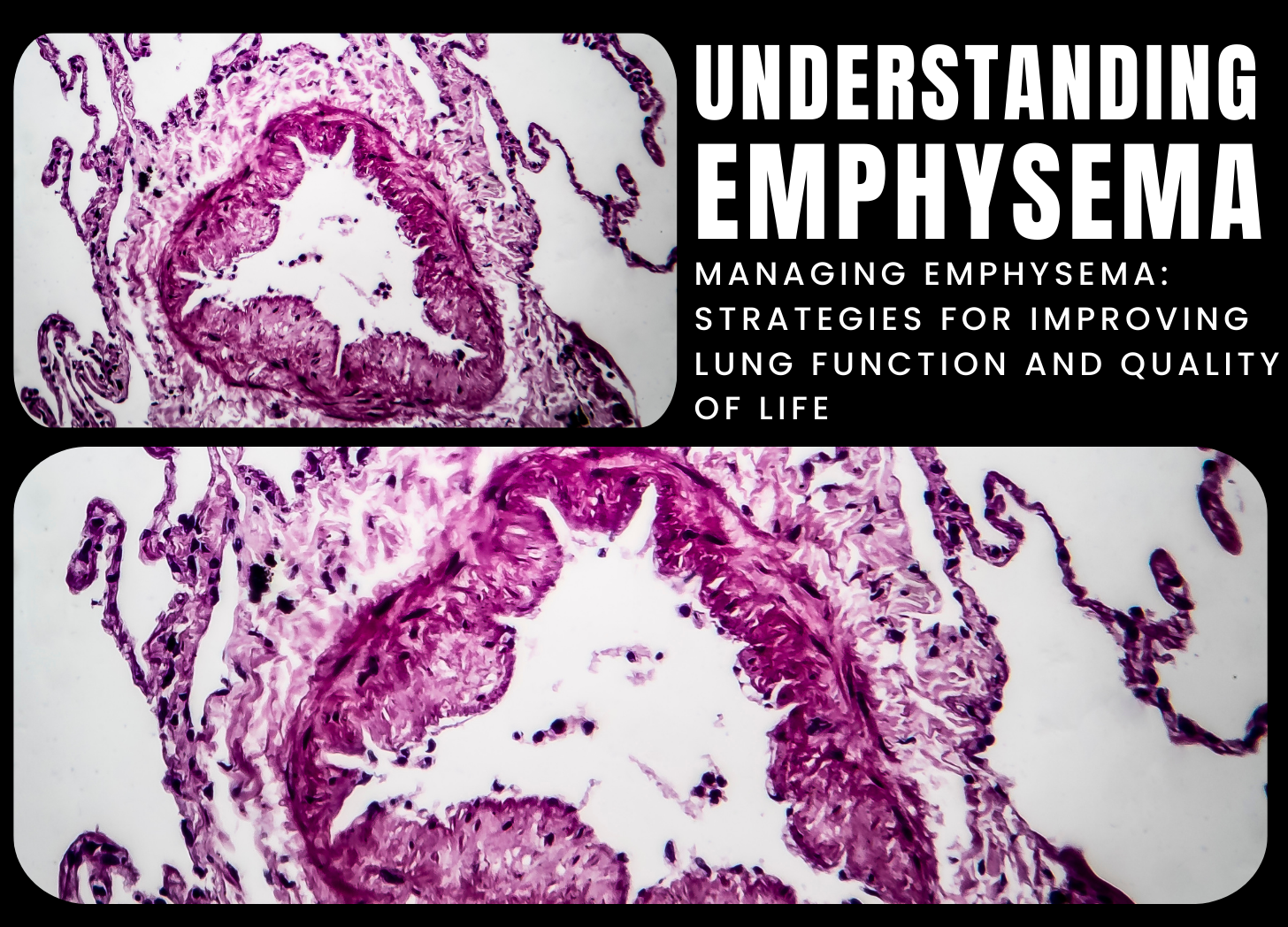Contact Us
Contact Us

Emphysema is a chronic lung disorder defined by the progressive deterioration of the lungs’ air sacs, known as alveoli. This progressive deterioration impairs the lungs’ ability to adequately exchange oxygen and carbon dioxide, resulting in symptoms including shortness of breath, coughing, wheezing, and chest tightness. Emphysema is frequently associated with chronic obstructive pulmonary disease (COPD), a category of lung disorders that includes chronic bronchitis.
The primary cause of emphysema is prolonged exposure to irritants and toxins, particularly cigarette smoke. Smoking is the principal cause of emphysema, accounting for the great majority of cases. Other risk factors include secondhand smoke, air pollution, occupational exposure to dust or fumes, and genetic conditions such alpha-1 antitrypsin deficiency, which predisposes people to emphysema at an early age.
Shortness of breath is the primary symptom of emphysema, and it tends to increase over time as lung function degrades. Other common symptoms include chronic coughing, wheezing, chest tightness, exhaustion, unintentional weight loss, and repeated respiratory infections. Individuals with advanced emphysema may encounter severe respiratory difficulties and require supplementary oxygen therapy to maintain adequate oxygen levels in the blood.
Emphysema is normally diagnosed after a complete medical history, physical examination, and pulmonary function tests to evaluate lung function. Chest X-rays and computed tomography (CT) scans can also be used to assess lung structure and detect emphysema symptoms including hyperinflation and bullae.
Emphysema management aims to relieve symptoms, decrease disease progression, and improve quality of life. Quitting smoking is the most important step in treating emphysema and preventing additional lung damage. In addition, bronchodilators, inhaled corticosteroids, and oxygen treatment may be recommended to relieve symptoms and improve lung function.
Pulmonary rehabilitation programs, which involve exercise training, breathing exercises, education, and support, can assist emphysema patients increase their exercise tolerance, reduce dyspnea, and improve overall physical function. In severe cases of emphysema that do not respond to conservative therapy, surgical procedures such as lung volume reduction surgery or lung transplantation may be explored.
In conclusion, emphysema is a chronic lung disorder defined by the progressive deterioration of the lungs’ air sacs, resulting in symptoms such as shortness of breath and coughing. While emphysema cannot be cured, effective management options such as quitting smoking, pharmaceutical therapy, pulmonary rehabilitation, and surgical interventions can assist people with emphysema retain lung function, improve symptoms, and improve their quality of life.
References:
1.American Lung Association. (2022). Emphysema. Retrieved from https://www.lung.org/lung-health-diseases/lung-disease-lookup/emphysema
2.Mayo Clinic. (2022). Emphysema. Retrieved from https://www.mayoclinic.org/diseases-conditions/emphysema/symptoms-causes/syc-20355555
Post a Comment